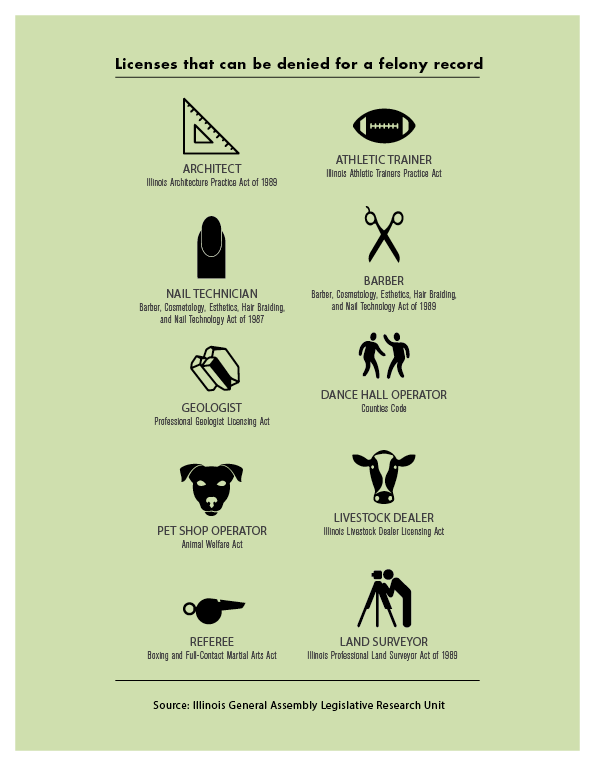How occupational licensing blocks path to success for ex-offenders
Nearly 2 in 5 workers in the U.S. need government permission just to do their jobs.
Anyone with a criminal record has a hard time finding work, even if they weren’t convicted of a violent crime.
One study in New York conducted by the National Institute of Justice showed ex-offenders were 50 percent less likely to receive callbacks or job offers. Employers are understandably reluctant to hire someone if they have a reason to think, right or wrong, that a job applicant could be untrustworthy or would somehow put customers at risk.
But what many may not know is that the law makes many occupations off-limits for people with a criminal record – even if an employer is willing to give them a chance.
This is just one of the consequences of overly burdensome occupational licensing. An occupational license is a regulatory tool used by local, state and federal governments that gives someone permission to practice a profession. A study by the Society of Labor Economics showed that nearly 2 in 5 workers in the U.S. need government permission just to do their jobs. Such licensing is one of the many ways state and local governments raise barriers to entry for a variety of professions.
Officials justify these rules by claiming they protect public health and safety, ensuring only highly qualified and well-trained professionals enter a given job market. But what they in fact tend to do is restrict choice and increase costs by limiting the ability of newcomers to compete for customers by offering better service at a lower price.
Licensing restrictions don’t only keep people from being hired to work in a licensed profession; they also prevent ex-offenders from making their own jobs by becoming entrepreneurs. In Illinois, barbers, cosmetologists and nail technicians, for example, can be denied a license if they have a record. So ex-offenders can’t open their own hair salon or nail shop. The same rules apply to many other professions as well.
As a result, licensing requirements prevent people from starting a business and creating their own opportunity when no one else will hire them.
In Illinois, there are over 100 professions and business licenses that either can or must be denied to anyone with a criminal record. This includes barbers and nail technicians – occupations that tend to offer a path to the middle class for many low-income workers. It matters to everyone when ex-offenders can’t find work; former offenders who have jobs are significantly less likely to be incarcerated in the future.
There are some options that exist now to alleviate this problem. Some states, Illinois included, offer certificates of rehabilitation, which remove some of the employment restrictions imposed by occupational licensing statutes. An ex-offender can qualify for a “Certificate of Relief from Disabilities” from the court that sentenced them, which attests to them being reformed and exempts them from rules that would keep them from getting a professional license, so long as they meet all other qualifications. A “Certificate of Good Conduct” can be issued for anyone who goes either one year after release for a misdemeanor or two years after release from certain felonies without committing further crimes. These certificates also exempt employers from any “third-party liability” when they hire former offenders.
But these piecemeal fixes don’t go far enough. Petitioning the court for any of these certificates can cost money – something many newly released and unemployed offenders don’t have. Furthermore, people in this situation can’t just wait a year or two for a certificate of good conduct when they need to support themselves and their families immediately upon release from prison.
There’s no single remedy to fix the problem of ex-offender unemployment. But part of the solution is simple: let people work without asking the government’s permission first. This may not fix the ex-offender unemployment problem overnight. But government shouldn’t be in the business of keeping people out of jobs.
Image credit: Angie Chung

